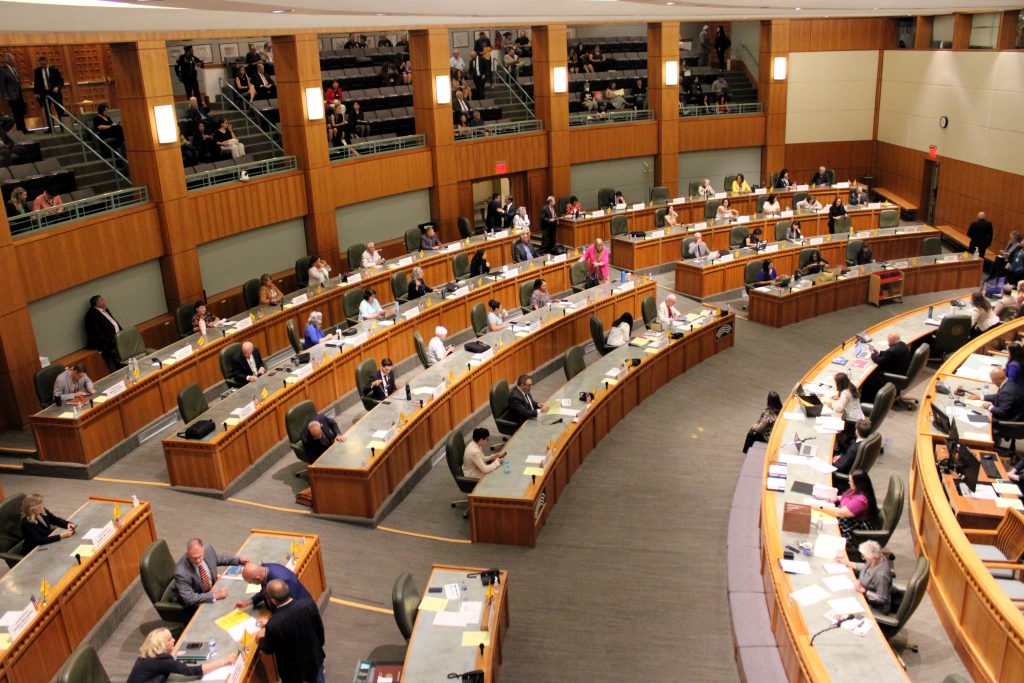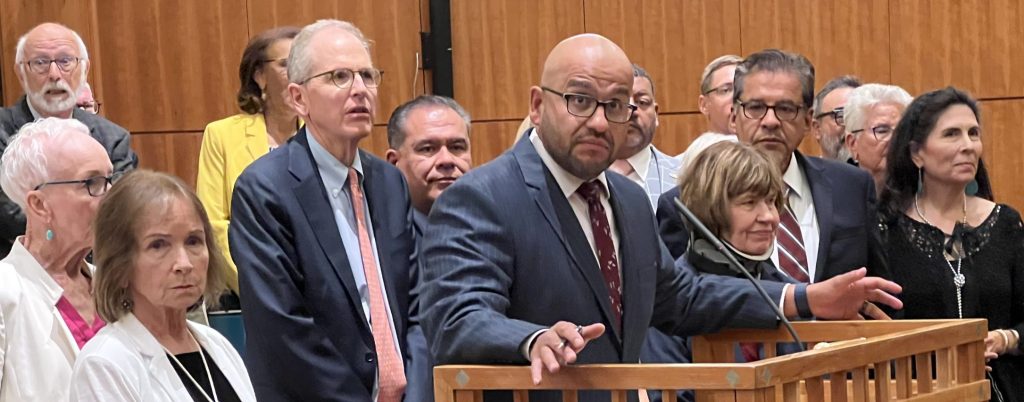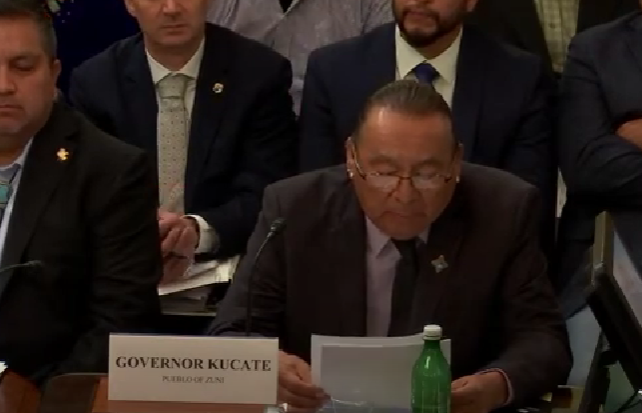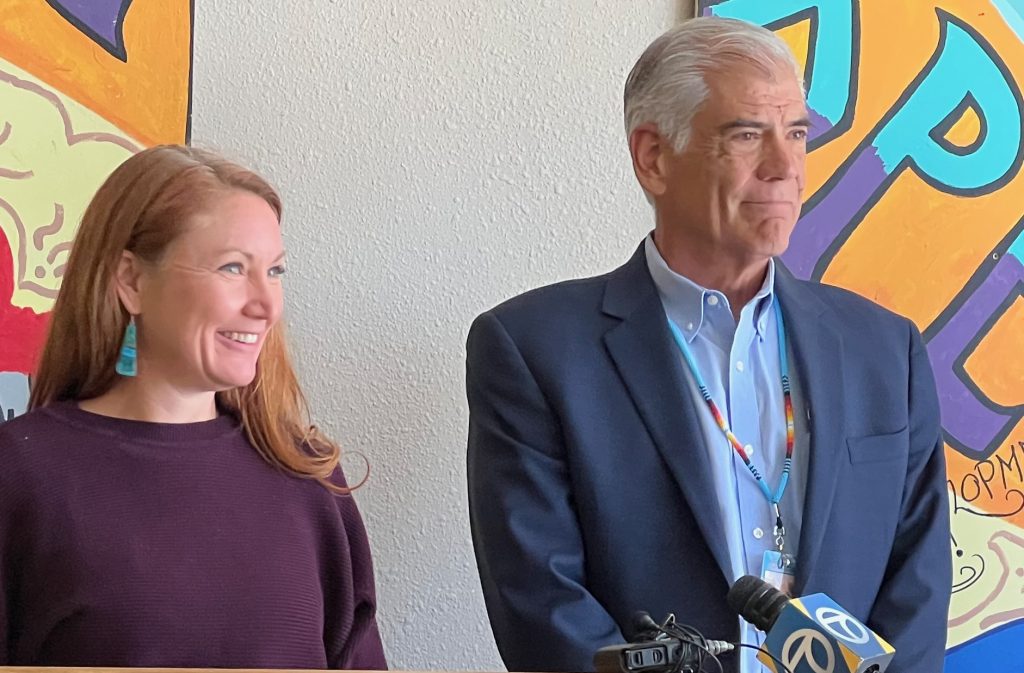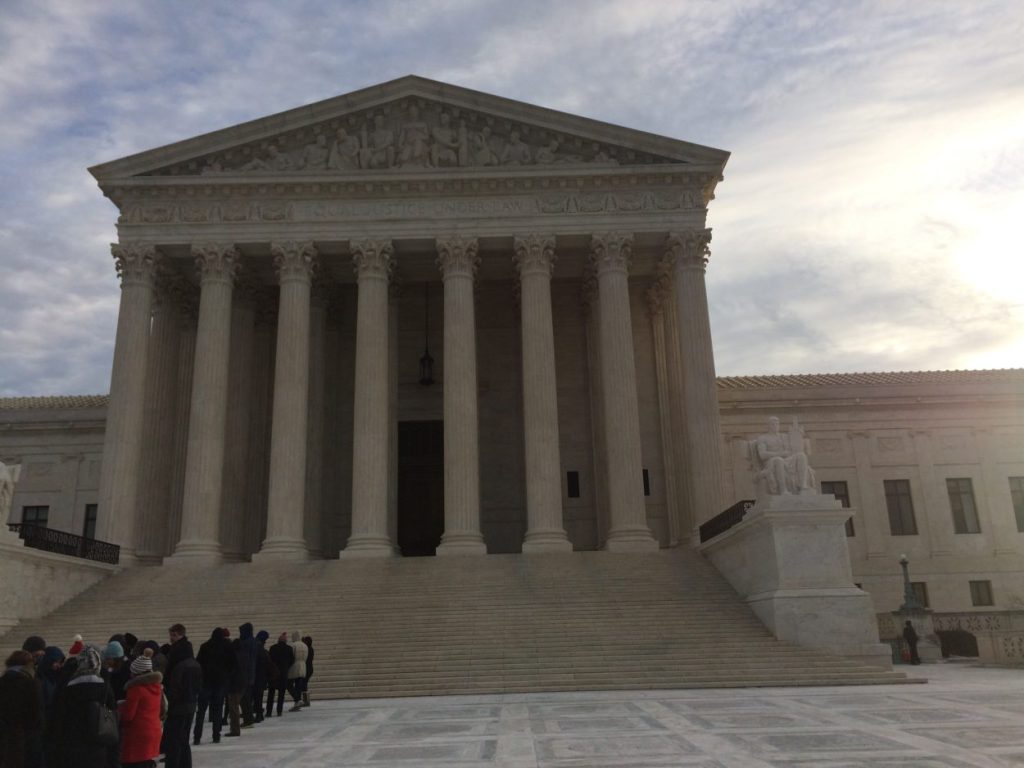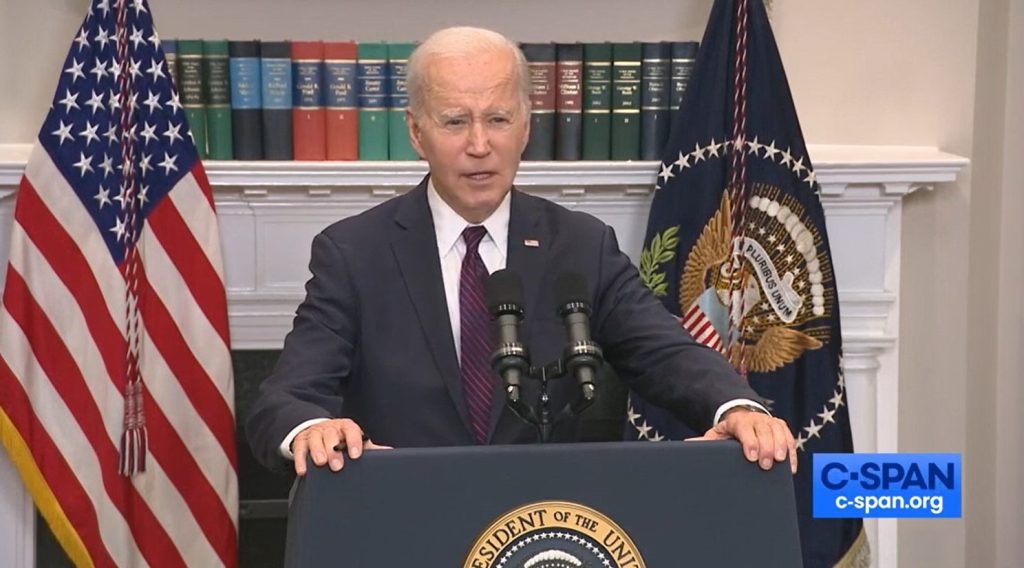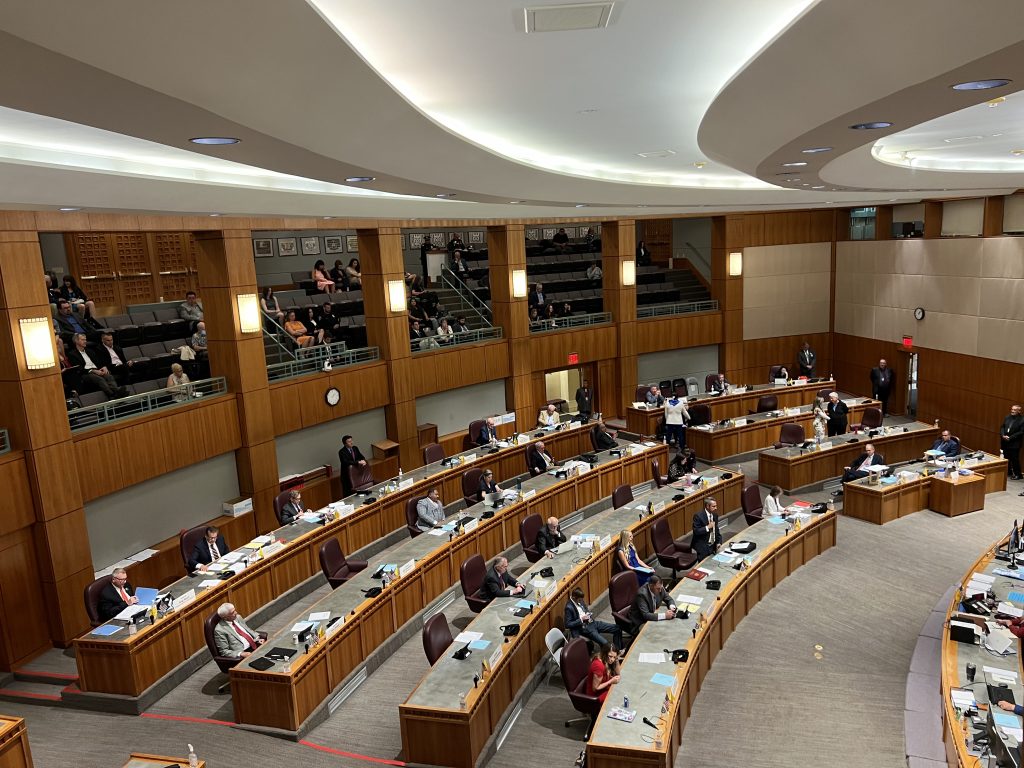The New Mexico Supreme Court issued a ruling on Monday that the constitutional amendment that led to members of the New Mexico Public Regulation Commission being appointed by the governor rather than elected did not constitute logrolling.
Logrolling is when multiple proposals are placed in a single ballot question.
The New Mexico constitution forbids logrolling and requires that each proposal that would amend the constitution be voted on individually.
Three Indigenous nonprofits came together last year to challenge the constitutional amendment that passed during the 2020 election and went into effect on Jan. 1 of this year.
These groups argued that multiple individual measures amending the constitution were logrolled into the single ballot question. They also argued that it was not clear to the voters that they would be giving up their constitutional right to elect PRC commissioners to represent them based on district.
The court found that the “substantive issue at the heart of this case” was whether the state legislature engaged in logrolling when it authorized placing the measure on the ballot. The language displayed on the ballot is based on what the legislature approves.
In addition to changing the commission to an appointed body, the amendment reduced the number of commissioners and removed the districts.
“Of course, we acknowledge that each of the several changes proposed by Amendment 1 could
have been submitted separately to the voters,” the court wrote in the unanimous opinion issued Monday, which was authored by Justice Michael Virgil. “We also acknowledge that some voters may have preferred one change and opposed another. We express no opinion on the merits or wisdom of the changes made by Amendment 1. We conclude only that the Legislature’s choice to join the various changes together in a single-ballot measure was not irrational.”
The court also found that the ballot language did not mislead the voters and that voters should educate themselves and familiarize themselves with the proposed constitutional amendments prior to voting on them.
The Secretary of State’s office provided a voter’s guide in 2020 that provided information about the constitutional amendment.
“The entirety of Amendment 1 was widely debated before the election, and all of the chief effects of the amendment – including and especially the transition to appointed Commission members and the reduction of the PRC’s responsibilities – were well known to the public,” the court stated in the ruling.


